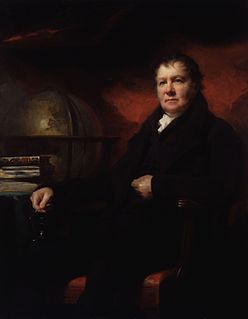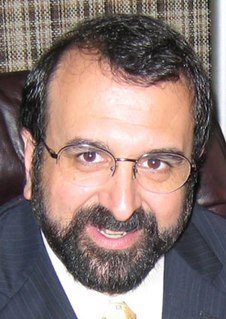A Quote by Thomas B. Macaulay
Genius is subject to the same laws which regulate the production of cotton and molasses.
Related Quotes
In the 18th century, James Hargreaves invented the Spinning Jenny, and Richard Arkwright pioneered the water-propelled spinning frame which led to the mass production of cotton. This was truly revolutionary. The cotton manufacturers created a whole new class of people - the urban proletariat. The structure of society itself would never be the same.
The Man of Genius may at the same time be, indeed is commonly, an Artist, but the two are not to be confounded. The Man of Genius,referred to mankind, is an originator, an inspired or demonic man, who produces a perfect work in obedience to laws yet unexplored. The artist is he who detects and applies the law from observation of the works of Genius, whether of man or nature. The Artisan is he who merely applies the rules which others have detected. There has been no man of pure Genius, as there has been none wholly destitute of Genius.
Amid all the revolutions of the globe, the economy of Nature has been uniform, ... and her laws are the only things that have resisted the general movement. The rivers and the rocks, the seas and the continents, have been changed in all their parts; but the laws which direct those changes, and the rules to which they are subject, have remained invariably the same.
The ideas of the ruling class are in every epoch the ruling ideas, i.e. the class which is the ruling material force of society, is at the same time its ruling intellectual force. The class which has the means of material production at its disposal, has control at the same time over the means of mental production, so that thereby, generally speaking, the ideas of those who lack the means of mental production are subject to it. The ruling ideas are nothing more than the ideal expression of the dominant material relationships, the dominant material relationships grasped as ideas.
The laws ought to be so framed as to secure the safety of every citizen as much as possible. ... Political liberty does not consist in the notion that a man may do whatever he pleases; liberty is the right to do whatsoever the laws allow. ... The equality of the citizens consists in that they should all be subject to the same laws.
The capitalist engine is first and last an engine of mass production which unavoidably also means production for the masses. . . . It is the cheap cloth, the cheap cotton and rayon fabric, boots, motorcars and so on that are the typical achievements of capitalist production, and not as a rule improvements that would mean much to the rich man. Queen Elizabeth owned silk stockings. The capitalist achievement does not typically consist in providing more silk stockings for queens but in bringing them within reach of factory girls.
There's going to be a lot of remedies. [Donald Trump] is also subject to other conflicts laws.The bribery laws are intended to prevent conflicts, for example. He's subject to criminal law. He's subject to civil law. He's going to be subject to litigation. He's already in a lot of cases. This is going to come up in existing litigation and there's going to be new litigation.
State inspection laws, health laws, and laws for regulating the internal commerce of a State, and those which respect turnpike roads, ferries, &c. are not within the power granted to Congress. ... Inspection laws, quarantine laws, health laws of every description, as well as laws for regulating the internal commerce of a State, and those which respect turnpike roads, ferries, &c., are component parts of this mass. No direct general power over these objects is granted to Congress, and, consequently, they remain subject to State legislation.
What's more, sharia finance is another tool of Islamic separatism; instead of assimilating into American society, Muslims are demanding, and receiving, parallel financial institutions that reinforce the idea that they are unique, not subject to the laws and norms to which the rest of us are subject-a privileged class. At the same time, sharia finance initiatives are giving Islamic interests increased control over Western economic life.
The world's major religions in the end all want the same thing, even though they were born in different places and circumstances on this planet. What the world needs today is a convergence of the different religions in the search for and definition of the cosmic or divine laws which ought to regulate our behavior on this planet.


































